April 21, 2025 | Vatican City
The world mourns the passing of Pope Francis, the first Latin American pontiff, who died on Easter Monday, April 21, 2025, at the age of 88. His death, announced by Cardinal Kevin Farrell at 7:35 AM CEST, marks the end of a transformative 12-year papacy that reshaped the Roman Catholic Church with a focus on inclusivity, humility, and social justice. This blog post explores Pope Francis’s life, his impactful legacy, the circumstances of his death, and what lies ahead for the Catholic Church.
Who Was Pope Francis?
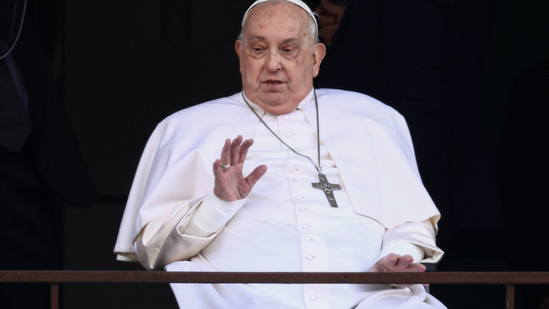
Born Jorge Mario Bergoglio on December 17, 1936, in Buenos Aires, Argentina, Pope Francis was the first Jesuit pope, the first from the Americas, and the first non-European pontiff in over 1,300 years. Elected on March 13, 2013, following the resignation of Pope Benedict XVI, he chose the name Francis in honor of St. Francis of Assisi, reflecting his commitment to the poor and marginalized. His papacy was defined by humility—he opted to live in the modest Casa Santa Marta rather than the papal apartments—and a progressive vision that sought to modernize the Church.
Key Achievements of Pope Francis
- Advocacy for the Marginalized: Francis was a vocal champion for migrants, refugees, and the poor, famously criticizing policies like U.S. President Donald Trump’s immigration deportations.
- Environmental Stewardship: His 2015 encyclical, Laudato Si’, made climate change a central focus of Catholic teaching, urging global action.
- Inclusivity: He opened discussions on taboo topics like LGBTQ+ inclusion, famously saying, “Who am I to judge?” while maintaining traditional Church stances on issues like same-sex marriage.
- Church Reforms: Francis tackled clerical abuse by establishing accountability measures and investigated Vatican Bank corruption, though critics noted gaps in transparency.
- Interfaith Dialogue: His visits to places like Abu Dhabi and Iraq fostered unity with other faiths, including a historic meeting with Grand Ayatollah Ali al-Sistani.
Pope Francis’s Death: What Happened?
Pope Francis passed away at his residence in Casa Santa Marta, Vatican City, at 7:35 AM CEST on April 21, 2025, just a day after blessing crowds in St. Peter’s Square on Easter Sunday. The Vatican has not officially disclosed the exact cause of death, but Italian sources suggest a brain-related issue, possibly a stroke, following a recent battle with double pneumonia.
Health Struggles Leading Up to His Death
Francis had faced significant health challenges in recent years:
- Chronic Lung Issues: A lung excision in his youth left him vulnerable to respiratory infections. In February 2025, he was hospitalized for 38 days at Rome’s Gemelli Hospital for double pneumonia, experiencing multiple respiratory crises.
- Critical Moments: On February 28, 2025, doctors considered halting treatment due to a severe respiratory crisis, but aggressive therapies, approved by his nurse, saved him.
- Recovery and Final Days: Discharged on March 23, 2025, Francis resumed a limited schedule, making public appearances, including a meeting with U.S. Vice President JD Vance on April 20. His frail voice and wheelchair use underscored his fragility.
Despite these challenges, his Easter Sunday appearance in the popemobile delighted thousands, making his sudden death a shock to many.
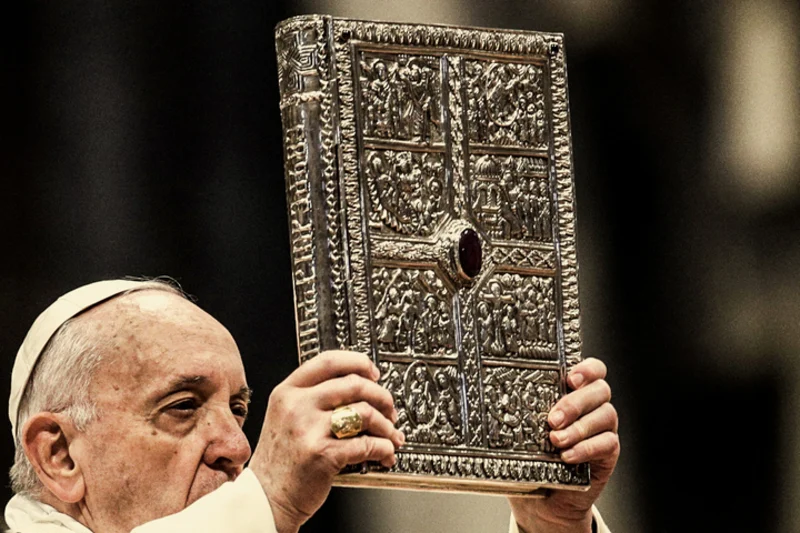
The Vatican’s Response and Funeral Arrangements
Following his death, the Vatican entered a period known as sede vacante (vacant seat), with Cardinal Kevin Farrell, the camerlengo, overseeing operations. Farrell announced the pontiff’s passing, stating, “His entire life was dedicated to the service of the Lord and His Church.”
Funeral and Mourning Rituals
Pope Francis had requested a simplified funeral, reflecting his humility:
- Confirmation of Death: Farrell ceremonially called Francis’s baptismal name, Jorge Mario Bergoglio, three times, confirming his death with a doctor’s certificate.
- Public Viewing: His body, dressed in a white cassock, will lie in state in St. Peter’s Basilica, possibly from April 23, 2025, in an open wooden coffin, eschewing the traditional raised platform.
- Funeral Mass: Expected between April 25–27, 2025, in St. Peter’s Square, led by Cardinal Giovanni Battista Re, with global leaders likely in attendance.
- Burial: Francis will be buried in the Basilica of St. Mary Major in Rome, a departure from the Vatican Grottoes, in a single zinc-and-wood coffin.
A nine-day mourning period, the Novendiale, will include daily masses and prayers worldwide.
Global Reactions to Pope Francis’s Death
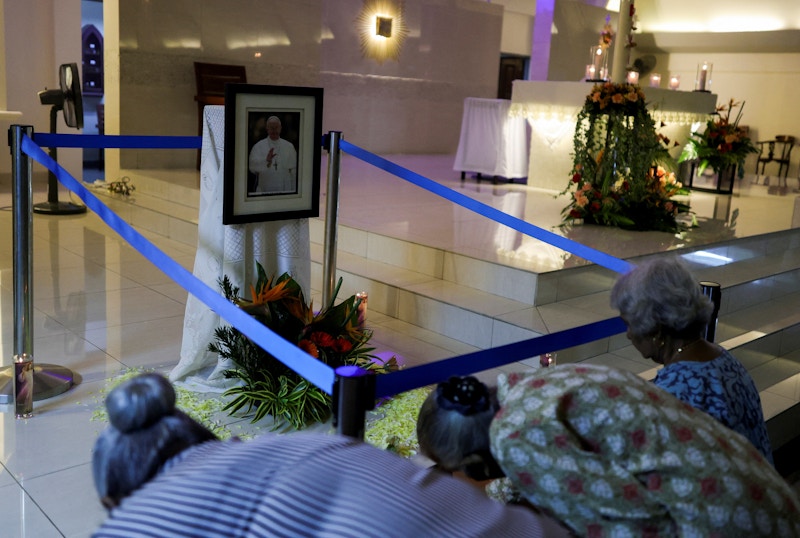
The news prompted an outpouring of tributes from world leaders and ordinary Catholics:
- U.S. President Donald Trump: “Rest in Peace Pope Francis! May God Bless him and all who loved him.”
- Italian Prime Minister Giorgia Meloni: Called him “a great man and a great shepherd.”
- King Charles III: Expressed deep sadness, recalling personal meetings and Francis’s commitment to peace.
- Palestinian Authority President Mahmoud Abbas: Praised Francis as a “symbol of tolerance, love, and fraternity.”
- South African President Cyril Ramaphosa: Noted the global sadness among Catholics and people of all faiths.
Mourners gathered in St. Peter’s Square, some in tears, as church bells tolled across Rome. In Jakarta, Indonesia, and Jerusalem, special masses were held to honor his legacy.
What Happens Next? The Papal Conclave
The death of Pope Francis triggers a historic process to elect his successor:
- Conclave Timeline: A conclave, where cardinals under 80 vote in the Sistine Chapel, is expected between May 6–11, 2025, 15–20 days after his death.
- Eligible Voters: Of the 252 cardinals, 135 are eligible to vote. Francis appointed nearly 80% of them, increasing the likelihood of a progressive successor.
- Process: Cardinals vote in rounds until a candidate secures a two-thirds majority. Black smoke signals no decision; white smoke announces a new pope, followed by the proclamation “Habemus Papam.”
- Key Figures: Cardinal Giovanni Battista Re, the dean, will oversee preparations, while Farrell manages transitional duties.
The conclave will be a battleground for the Church’s future direction—whether to continue Francis’s inclusive approach or revert to conservative doctrines.
Pope Francis’s Lasting Legacy
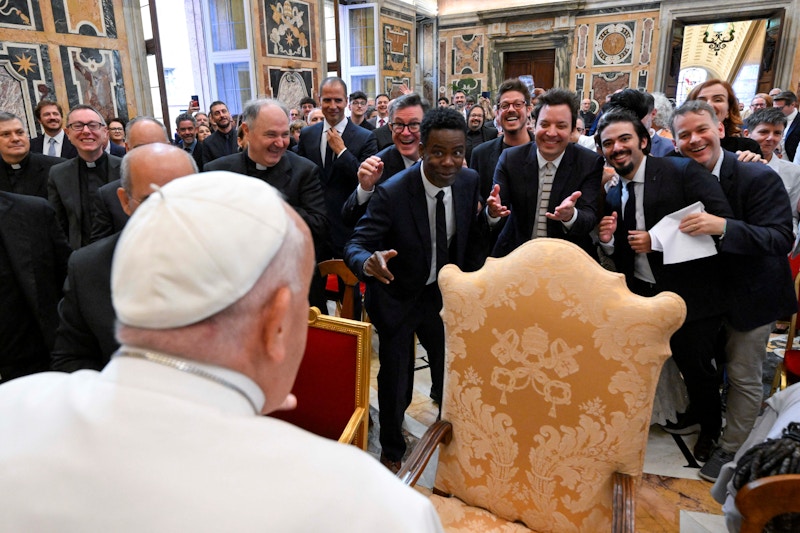
Pope Francis leaves behind a complex legacy:
- Progressive Reforms: His push for inclusivity, women’s roles in the Church, and dialogue on LGBTQ+ issues opened new conversations, though traditionalists criticized him for diluting doctrine.
- Global Impact: His advocacy for peace, notably in Gaza, and his condemnation of anti-Semitism resonated worldwide.
- Challenges: Critics argue he fell short on clerical abuse transparency and failed to fully address systemic issues.
As one mourner in St. Peter’s Square said, “He was the People’s Pope, teaching us to help each other.” His memoir, Hope, published in January 2025, encapsulates his vision of faith and unity.
Why This Matters for Catholics and the World
Pope Francis’s death is not just a loss for the 1.4 billion Catholics but a moment of reflection for a world grappling with division, inequality, and environmental crises. His emphasis on compassion and dialogue offers lessons for leaders and individuals alike. The upcoming conclave will determine whether his vision endures, making this a pivotal moment in Catholic history.
Stay Updated on Pope Francis’s Legacy and the Conclave
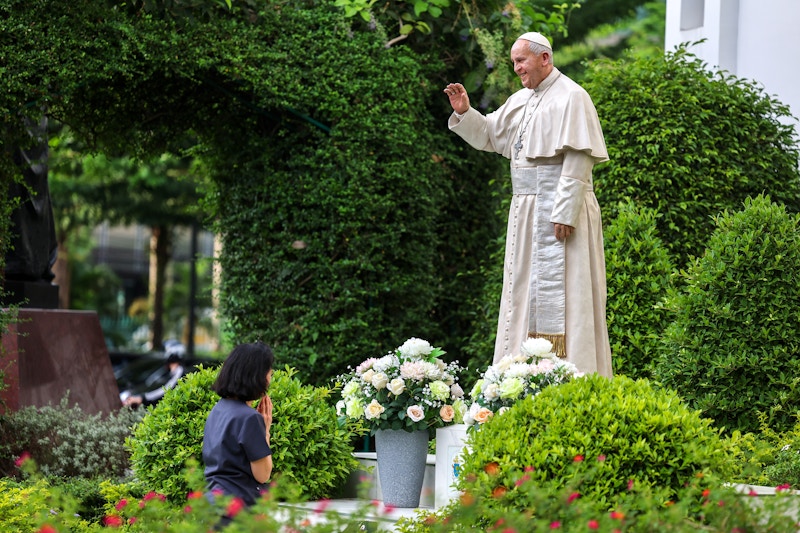
For the latest updates on the papal transition, funeral details, and conclave developments, bookmark this page or follow trusted sources like Vatican News, Reuters, and CNN. Share your thoughts on Pope Francis’s legacy in the comments below—how did his papacy inspire you?
Sources: Vatican News, Reuters, CNN, The New York Times, AP News, BBC, and posts on X.
It’s truly a somber moment for the world as we mourn the loss of Pope Francis, a figure who brought so much compassion, humility, and progress to the Catholic Church. His legacy of inclusivity and social justice has left an indelible mark on millions of lives. I wonder how the Church will navigate this transition and whether his vision will continue to guide its future. What do you think will be the most significant challenge for the next pope in carrying forward Pope Francis’s mission? His passing feels like the end of an era, and it’s hard to imagine the Church without his leadership.
The passing of Pope Francis is truly a profound loss for the world. His dedication to inclusivity, humility, and social justice has left an indelible mark on the Catholic Church and beyond. It’s inspiring how he chose to live modestly at Casa Santa Marta, reflecting his values so authentically. His leadership, especially as the first Latin American pope, was groundbreaking and gave a voice to those often marginalized. However, his sudden death raises questions about the Church’s future and whether his progressive vision will continue. What do you think his successor should prioritize to honor his legacy? Also, with such a transformative papacy, how do you see the Church evolving in the coming years? I think his impact will be felt for generations, but the transition ahead feels pivotal. What’s your take on the direction the Church should take now?
The passing of Pope Francis is truly a profound loss for the world. His dedication to inclusivity and social justice has left an indelible mark on the Catholic Church and beyond. It’s inspiring how he chose to live modestly, embodying the values he preached. His progressive vision challenged traditional norms, sparking both admiration and debate. The suddenness of his death, especially after his joyful Easter appearance, makes it even more heartbreaking. What do you think will be the most significant challenge for the next pope in continuing his legacy? His papacy was a beacon of hope for many—how do you think his teachings will shape the Church’s future?
It’s truly heartbreaking to hear about the passing of Pope Francis. His legacy of humility, inclusivity, and dedication to social justice has left an indelible mark on the world, not just the Catholic Church. His choice to live modestly and his focus on the marginalized were truly inspiring. I wonder, though, how the Church will navigate the election of a new pope—will they continue his progressive vision or shift in a different direction? It’s fascinating to think about the impact his papacy will have on the future of Catholicism. Do you think his successor will carry forward his initiatives, or will there be a return to more traditional approaches? His death feels like the end of an era, but also a moment of reflection and potential transformation. What do you believe was his most significant contribution to the Church and society?
This is truly a moment of profound loss. Pope Francis’s emphasis on humility and social justice left an indelible mark, not just on the Church, but on the world. His choice to live modestly and advocate for the marginalized was a breath of fresh air in an often-divided world. It’s fascinating how his papacy bridged tradition and modernity—do you think his successor will continue this balance, or will the Church take a different path? The shock of his sudden passing, especially after his joyful Easter appearance, feels like a cruel twist. His legacy of inclusivity will undoubtedly inspire generations, but I can’t help but wonder: was his progressive vision fully realized, or did it face too much resistance? What do you think the future holds for the Catholic Church in the wake of his death? I’d love to hear your thoughts.
I found this post deeply moving and reflective of Pope Francis’s profound impact on the world. His commitment to humility and social justice truly set him apart as a transformative leader. It’s remarkable how he chose to live modestly, even as the head of the Catholic Church, and his focus on the marginalized resonated with so many. The suddenness of his passing, especially after his Easter Sunday appearance, is heartbreaking. I wonder, though, how the Church will navigate the future without his guiding vision. Do you think his successor will continue his legacy of inclusivity, or will the Church take a different path? His death feels like the end of an era, but perhaps it’s also an opportunity for renewal. What are your thoughts on the direction the Church should take now?